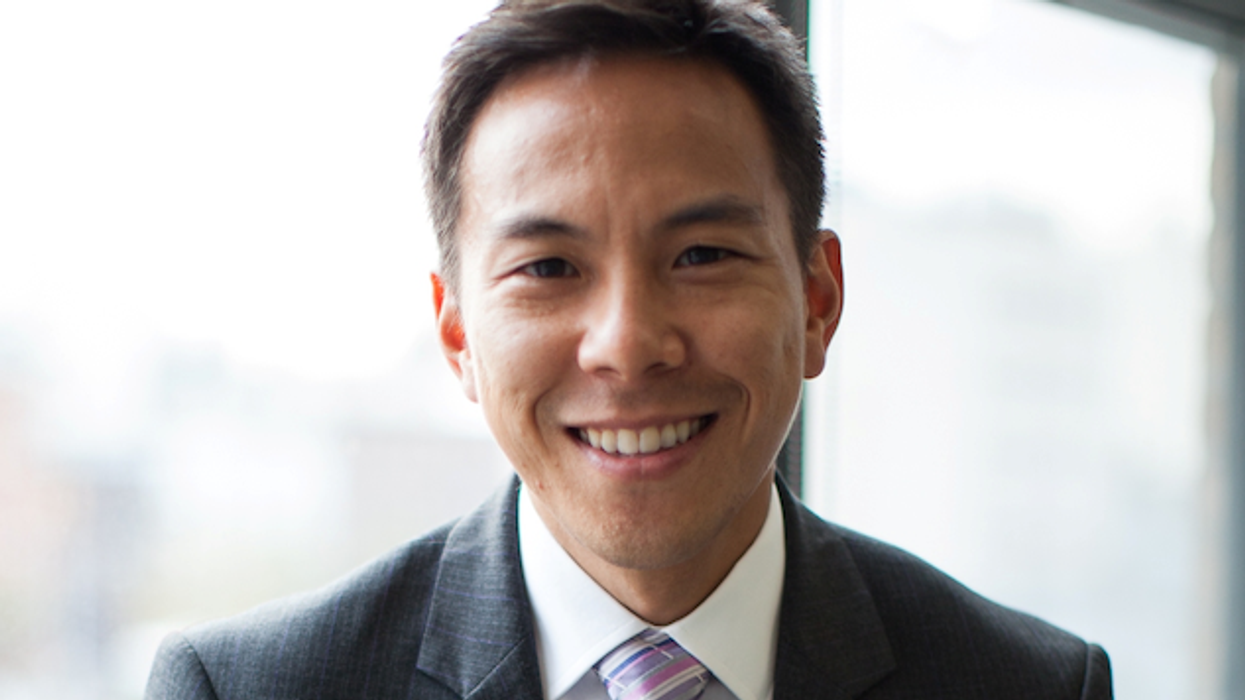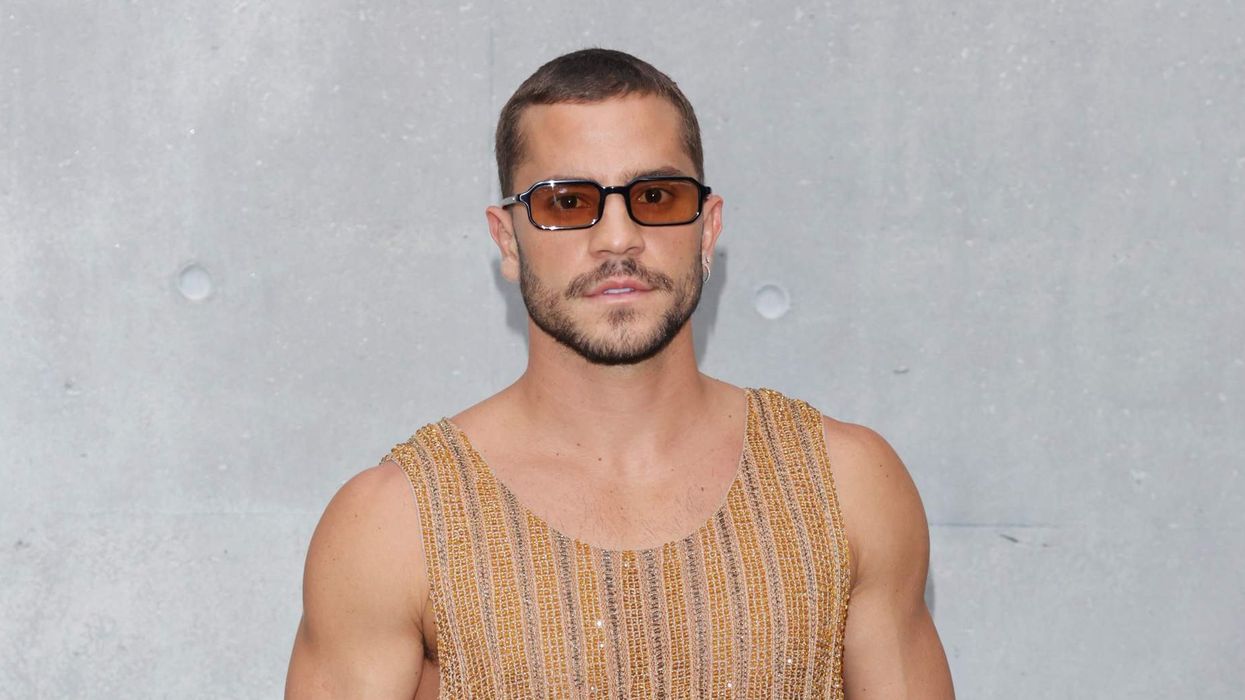Photo by Da Ping Luo
Kelsey Louie, the new CEO of the GMHC certainly has his work cut out for him. Along with an ambitious plan to drastically cut HIV infection rates in New York state by 2020, Louie takes over after CEO Marjorie Hill was reportedly forced out of the position last fall, and the HIV/AIDS organization faced controversy over fundraising efforts. Louie, a native New Yorker, served as Coordinator of Counseling & Education for the GMHC back in 2006, and he returns to a full plate. Though he hasn't even started on the job yet, Louie is already putting out fires, like the one claiming that GMHC's head of fundraising, Seth Rosen, is suffering a similar fate to Hill, with the annual AIDS Walk taking place this Sunday, May 18, in New York City.
READ: Whatever Happened to GMHC?
"Seth's departure from GMHC has been planned for months as he and his husband are starting a family, adopting a child who will be born in August," Louie said today, echoing a statement from Rosen. "I didn't have the pleasure of working with Seth, but he's done a fantastic job at GMHC and I wish him and his husband all the best."
We talked with Kelsey Louie about his plans for the GMHC, addressing controversy and struggles still facing the LGBT community in our exclusive interview.
Out: What are your primary goals as CEO?
Kelsey Louie: I share the Board's goals for GMHC. My first priority will be to champion the needs of our clients, who count on our services every day. Our primary goals all start with the program members. If we can be relevant and responsive to the needs of the most vulnerable living with HIV, we'll get our policy right and our strategic direction right. In other words, our mission drives our strategy.
What do you think is the single biggest problem facing the LGBT community today?
Stigma. We became a community because we share the experience of being marginalized because of our sexual orientation. As we achieve great strides on equality, we face a different problem. We are seeing intra-community divisions that can be destructive. Many in the HIV-negative LGBT community who stigmatize HIV-positive people can be as ignorant and destructive as those who stigmatized our entire community early in the epidemic. "Be clean" rhetoric can often lead to stigma and shame, which drives people away from testing and care--the very things that are the solution to the epidemic. Stigma silences people and it's still true that Silence = Death.
What are some specific ways you plan on cutting annual HIV infection rates to only 730 by 2020?
Evidence shows that earlier treatment achieves better health outcomes and we know that treatment is prevention. One way to reduce HIV infection rates is to change the operations and processes to improve linking people to care to meet these realities. If you can reduce the number of opportunities people have to fall out of care, you can dramatically reduce viral loads and improve client health outcomes -- and in turn reduce the overall risk of HIV transmission. GMHC has already begun some amazing work in this area and I'm eager to take it to the next level.
How do you plan on incorporating the needs of some of the more marginalized populations in the LGBT community, specifically trans people, LGBT youth and people of color?
I would start by asking people what they feel their needs are and listen intently. HIV is and always has been a disease of marginalized populations. HIV thrives in the undergrounds of shame and stigma, so we'll need to ensure that the staff are trained to be culturally and linguistically sensitive to work with different groups. We have had great success in achieving equality and integration in the LBGT community, but much remains to be done to spread that success across the many communities of LGBT people served at GMHC. That's why as an organization, GMHC must also continue to fight for equal access to care, treatment, housing, and supportive services throughout our community.
How do you plan to address the controversy regarding GMHC's use of funds moving forward?
I've run efficient operations at Harlem United and elsewhere by relying on sound financial management philosophies, systematic approaches, and data-driven decision making. Operational efficiencies will lead to programmatic opportunities and innovation. Identifying key performance indicators that are monitored on a regular basis and establishing routine continuous quality improvement practices will help ensure that we make the most effective use of public and private dollars.
What made you want to come back to the GMHC?
GMHC is one of the city's most important LGBT institutions and is uniquely poised to lead the fight against HIV/AIDS. With my experience in strengthening organizational capacity and improving client health outcomes, I want to build on GMHC's rich history of meeting the needs of its clients. With so much cultural attention re-focused on HIV/AIDS right now, GMHC has an exciting opportunity to chart a strategic direction for the future -- and I'm excited to take the reins and begin that process, in close consultation with the Board, clients and the staff.































